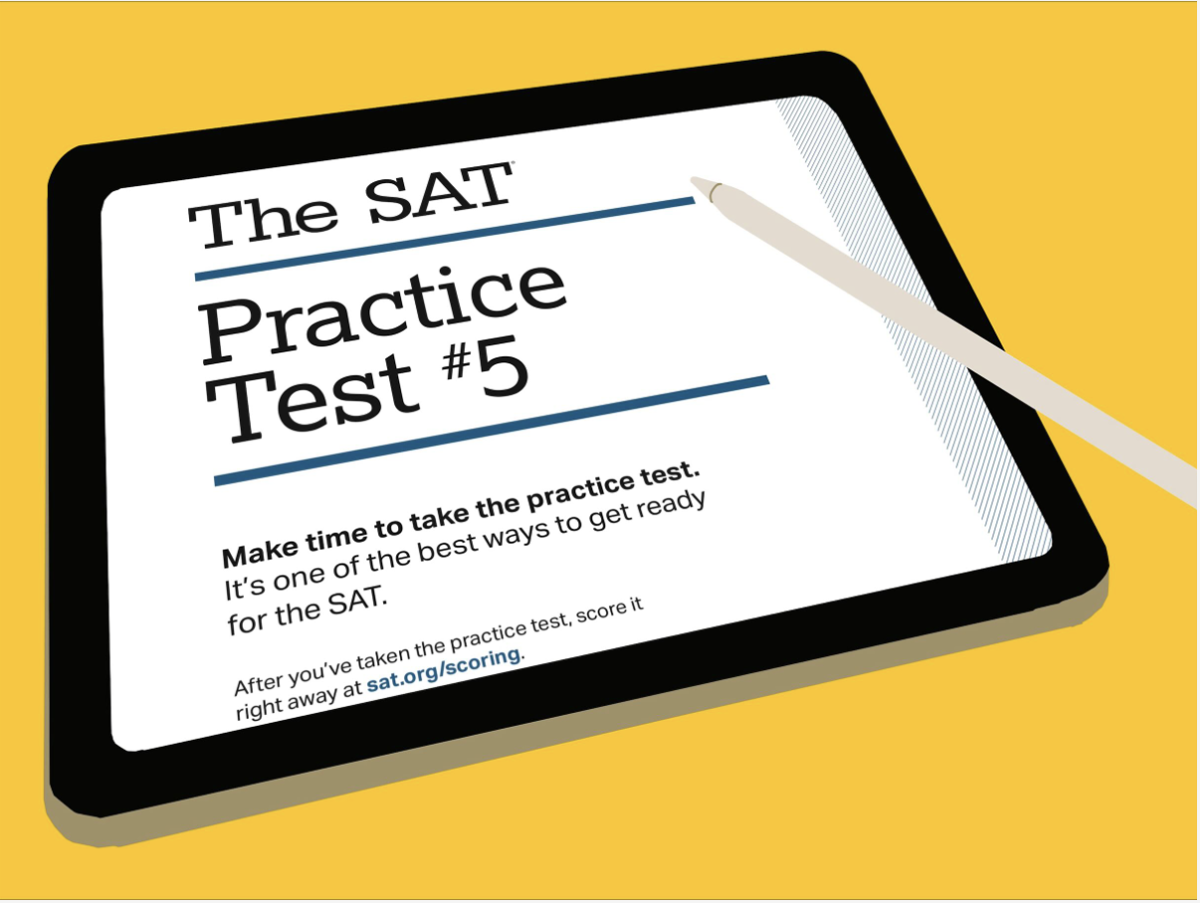“Test optional” policies make for more equitable college admissions
When COVID first hit and the mandated quarantine began, colleges were required to go test-optional, meaning while students had the option to submit their standardized test scores, (SAT or ACT), no student was required by the institution to report their score. Since quarantine has ended, students are able to take these tests once again, but a large portion of colleges have kept this policy. Many question and disagree with this decision, claiming that reverting back to requiring the submission of test scores would benefit students and admission processes.
However, these policies have many positives, including but not limited to, increased diversity and social equity. Currently, standardized tests block low-income families from accessing higher education. Achieving a high score, while impressive, is often a sign of high levels of test-specific prep, and the best prep comes in the form of expensive tutoring, which usually does not translate over to other parts of academics. While high-income families are able to and often purchase tutoring services, low-income, often minority, families cannot, and their test scores are much lower comparatively. Test optional policies allow these students to be judged fairly and not be disadvantaged by lack of access to expensive prep. Instead of being cast aside because of a low test score, a student with equal academic potential would now be admitted.
The effects of test-optional policies are apparent within college student bodies across the nation. In a survey conducted by MBA Roundtable and Wiley Education, over 40% of business school deans and faculty said that the diversity of gender, race, and ethnicity had increased since implementing test-optional policies. These increases in diversity contribute to achieving social equity and a more equal society.
There are, inevitably, those who disagree with these policies, claiming that standardized tests are the most accurate predictors of success in higher education. Removing these tests would logically make it harder for admissions officers to determine if an applicant would thrive at a certain college. Thankfully, this concern has already been addressed; while applicants can choose not to submit a test score, any submitted score is still considered with similar weight. If an applicant had an excellent test score, it would be taken into account, and applicants with subpar test scores can rely on other parts of their application. Essentially, test-optional policies allow students with strong applications and weak test scores to still have a good chance of being admitted. And considering the incredibly unequal country and world we live in, it’s incredibly important that policies like test optional continue to bridge that gap.
Test scores remain a crucial element of college admissions
Throughout numerous students’ college application journeys, this remains a lingering question in their minds. After navigating through the process this year, however, many would land upon a firm conclusion — NO. In fact, many believe it would be beneficial to bring back standardized testing requirements.
To begin the dissection of said question, it is important to understand the purpose of standardized tests — to measure high schoolers’ preparedness for higher education, and to predict their performance in college. For this reason, the tests provide sections like reading, writing, and math to evaluate students’ basic skills, and more importantly, to assess their test-taking abilities. It has been proven that standardized tests are a reliable predictor of students’ college performance, even more so than one’s GPA. The Harvard-based organization “Opportunity Insights” found that “Higher SAT/ACT scores are associated with higher college GPAs, but higher high school GPAs are not.” As a time-tested standard relied on by colleges to see past a student’s inflated grades and other factors that cannot be controlled for, standardized testing is a necessary tool for accurately judging one’s abilities.
Because the test-optional policy has proven that high school GPA doesn’t fully indicate a student’s future college performance, low-income students are, in return, placed at a disadvantage again, for they may blindly trust that test-optional policies would benefit them in terms of affordability, and would therefore lack this important element in their applications.
Test optional policies’ prevalence began as an effect of the COVID-19 pandemic, when many students were unable to access the test, and were therefore unable to submit test scores. Presently, the most common debate around this policy has shifted to the affordability of test taking, which involves not only the actual examination but more importantly the costly preparation behind tests, which, contrary to popular belief, only improves one’s performance by an average of 30 points on the SAT — not a significant increase — according to the University of Southern Florida. Though it is often stated that the standardized testing component of college application is disadvantageous against students from homes of lower socioeconomic status, for the expenses behind sterling test scores, it is in fact one of the fairer pieces of the entire application amongst all the costly extracurriculars, competitions, and summer programs, which privileged students have access to.
Though many colleges have adopted test-optional policies, submitting a good test score significantly boosts one’s chances of acceptance. For instance, Boston College, in the 2022 application cycle, admitted 25% of the students who submitted test scores, while only 10% of test-optional applicants got in. Through these statistics, it is evident that for some institutions, “test-optional” does not actually mean that this critical piece of information is optional since there exists a significant difference between the percentage of students accepted with and without test scores.
Naturally, after seeing the difference in acceptance rates for applicants who submit test scores and those who do not, students would be incentivized to continue to work towards higher test scores to gain a leg up over other applicants. It could be claimed that test-optional policies lead students from privileged backgrounds to work harder to achieve higher SAT scores since they understand that test-optional policies are not garnered towards them. Moreover, a missing score may become an indicator of one’s poor testing ability and would thus count against the applicant.
As the testing rat race continues, expectations for on-par or better test scores will only further increase, and standardized testing will once again become a requirement for applicants.




























